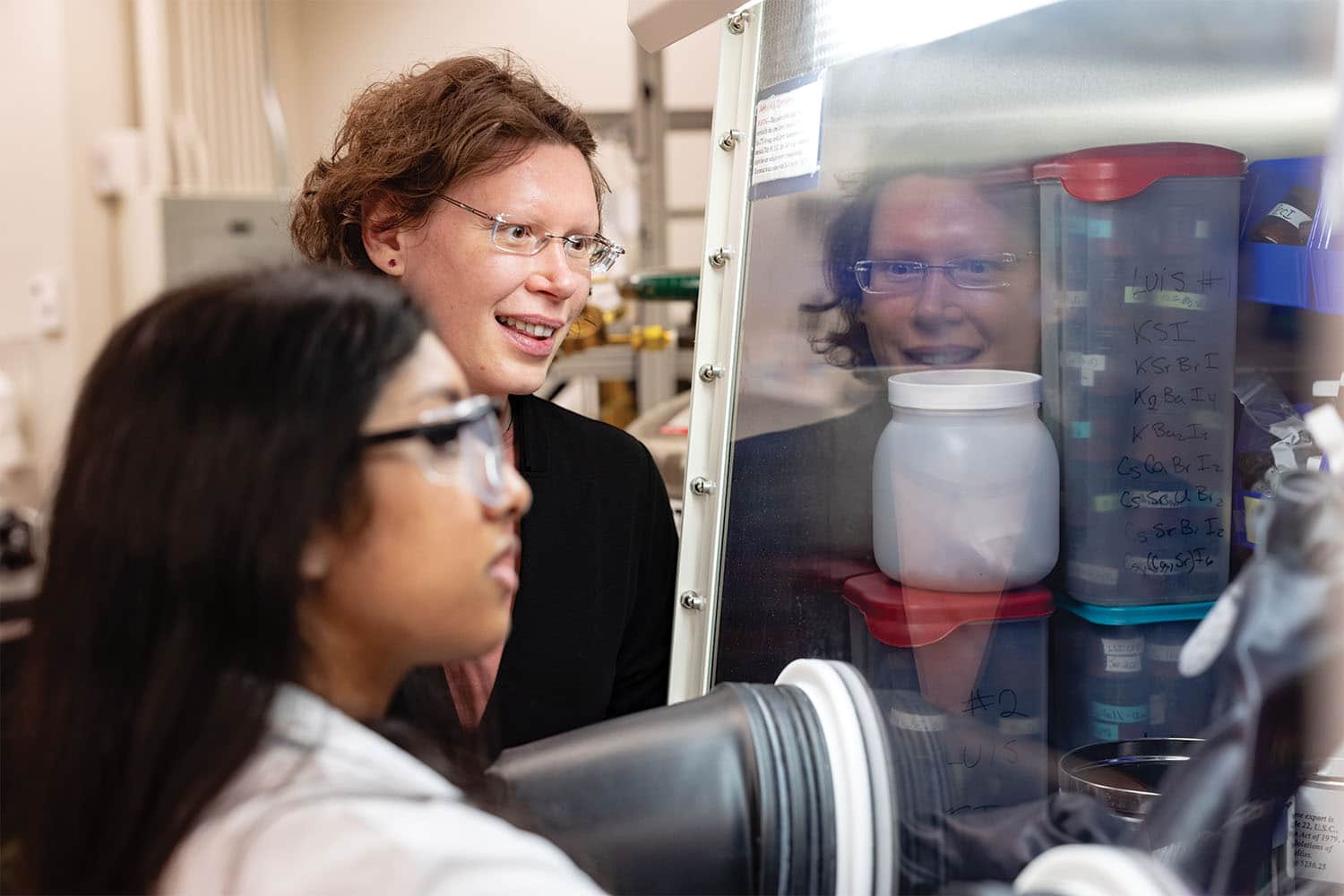Associate Professor Mariya Zhuravleva initially wondered if recruiting freshmen and sophomores for research projects in her lab would be feasible since she thought they would be too busy with classes and not ready to assume more responsibilities.
But after a few years of only having upperclassmen in her lab, Zhuravleva realized she would need to adapt her strategy. Zhuravleva’s research involving crystal growth is a slow process and requires patience. Giving younger students in the Department of Materials Science and Engineering (MSE) an earlier start in research would give them more time to learn and explore while allowing Zhuravleva to develop stronger relationships with them.
“I feel like they get more meaningful experiences through that, because they see the outcome of their work through the research results,” Zhuravleva said. “They have less pressure than some seniors in terms of delivering goals on their research projects, and I have more opportunities to interact with them and teach them how to do research.”
Zhuravleva was recently recognized for her positive influence on students. She received the Undergraduate Research Mentor of the Year award at the Academic Honors Banquet hosted by the Office of the Provost in May.
“It was very unexpected. I didn’t know who nominated me and why, but I’m really happy to have been selected to receive this award,” she said. “Now it motivates me to put more work into mentoring, and recruit and mentor as many students as I can.”
Zhuravleva joined the Scintillation Materials Research Center (SMRC) within the Tickle College of Engineering in 2009 as a postdoctoral research associate.
“There were undergrad students in the lab, and I just immediately started advising them informally, and then more formally as I progressed to my faculty appointment,” she said. “I really took that as a priority in my job responsibilities.”
Helping students grow
Senior Megan Gillespie joined Zhuravleva’s lab as a freshman aerospace engineering student to see if she was interested in switching her major to MSE, and if research was something she wanted to explore for a career. Under Zhuravleva’s guidance in the lab, Gillespie discovered her love for both MSE and research.
“Dr. Zhuravleva is such a good mentor because she pushes her students to do the best they can by providing opportunities for growth, such as conferences and poster competitions. But she doesn’t micromanage and allows her students autonomy in their research,” Gillespie said. “She provides a good general direction of where the research should be going, but it is up to the student to find the right path.”
Zhuravleva’s influence on her students extends from the lab into the classroom.
“She is also a wonderful teacher and made thermodynamics easier to learn,” Gillespie said. “She explains concepts thoroughly and ensures her student’s understanding of the material.”
Zhuravleva knew she wanted to become a teacher since her high school years growing up in Russia. Once she got to college, her own experiences and having influential mentors only strengthened her resolve.
“I didn’t want to go to industry, because I felt like industry would be more isolated,” Zhuravleva said. “I really wanted to be surrounded by students, younger people, so I could inspire them in some way if I could and see them grow and learn and become successful.”
Zhuravleva receives fulfillment from watching the evolution of her students in college. It’s rewarding for her to see the light bulb go off in their heads when they make connections in the lab or unearth new discoveries.
“I really enjoy just discussing and conceptualizing the research project strategy approach with the students and seeing how they think, because they’re so creative,” she said. “They really think outside the box sometimes. I really enjoy the process of strategizing the project and then following up with them and kind of seeing how we can adjust and make decisions.”
Contact
Rhiannon Potkey (865-974-0683, [email protected])
